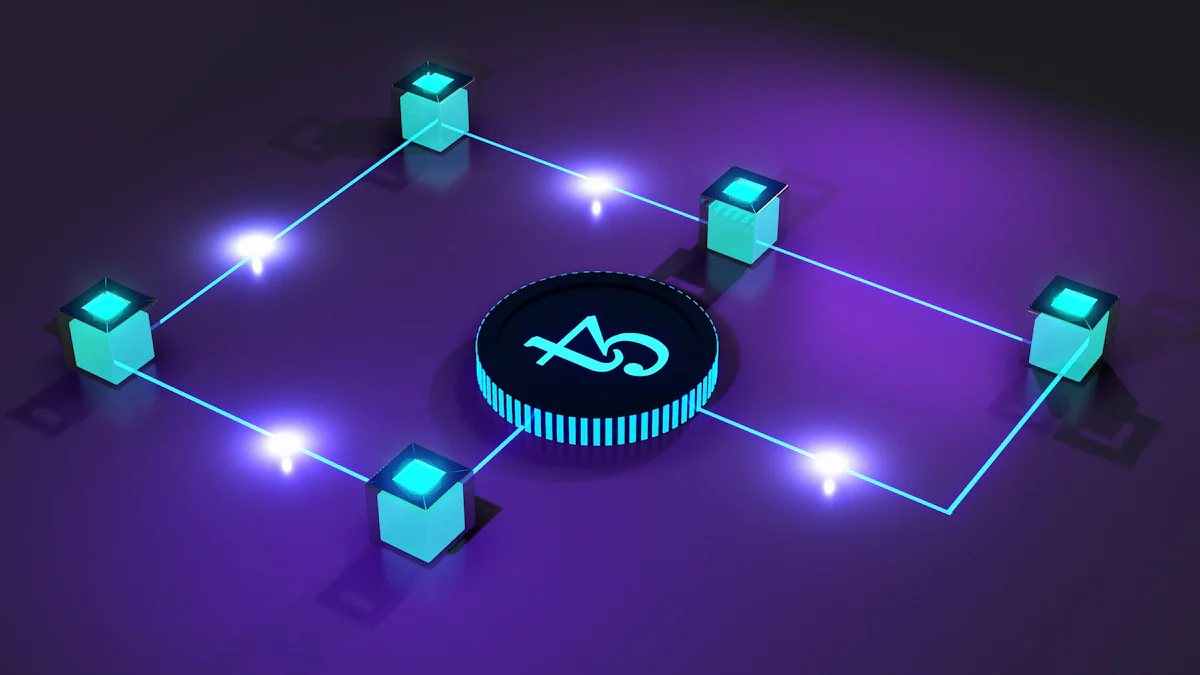Understanding Decentralized Finance (DeFi): A Beginner's Guide

Understanding DeFi
Decentralized Finance (DeFi) represents a groundbreaking shift in the traditional financial landscape, offering individuals access to financial services through the use of cryptocurrency and blockchain technology. This innovative approach aims to eliminate the need for intermediaries like banks, allowing for more direct and inclusive participation in financial activities. By leveraging decentralized networks, DeFi introduces new ways to lend, borrow, trade, and invest without relying on conventional financial institutions. This transformative concept is reshaping the future of finance by providing greater accessibility and transparency to global markets.
Exploring Synthetic Assets
Understanding Synthetic Assets
Blockchain-based synthetic assets, also known as synthetic tokens, are digital representations of real-world assets such as stocks, commodities, or currencies. These assets are designed to mirror the value and performance of the underlying traditional financial instruments. By leveraging blockchain technology, synthetic assets enable decentralized access to a wide range of financial products that were previously only accessible through centralized entities like banks and brokerage firms.
Benefits of Synthetic Assets
Diversification Opportunities: Synthetic assets offer investors the ability to diversify their portfolios within decentralized finance. This means that individuals can gain exposure to various asset classes without the need for traditional intermediaries.
Access to Global Markets: Through synthetic assets, participants in DeFi can access global markets and trade a diverse array of assets without geographical limitations.
Risk Management: Synthetic assets provide a means for managing risk within investment portfolios by offering exposure to different asset classes while mitigating potential losses.
In the words of an industry expert: "Synthetic assets play a pivotal role in expanding financial inclusion and democratizing access to global markets by providing a decentralized gateway to traditional financial instruments."
Farming Yield Concepts
Yield Farming Explained
Yield farming, also known as liquidity mining, is a strategy employed in the decentralized finance space to generate returns on cryptocurrency holdings. Participants can earn rewards by providing liquidity to DeFi protocols through various avenues such as lending, borrowing, and trading. This process involves users contributing their crypto assets to liquidity pools, which are used to facilitate decentralized trading. In return for their contributions, participants receive fees and other incentives in the form of additional tokens.
One of the key components of yield farming is the concept of automated market makers (AMMs). These are algorithms that enable seamless asset swaps without the need for traditional order books. By utilizing AMMs, participants can optimize their returns by strategically allocating their assets across different liquidity pools.
Risks and Rewards of Yield Farming
While yield farming presents an opportunity for high potential rewards, it also comes with significant risks. The primary risk factors include market volatility and smart contract vulnerabilities. Fluctuations in cryptocurrency prices can impact the overall value of assets held within liquidity pools, potentially affecting the profitability of yield farming activities. Additionally, smart contracts that underpin DeFi protocols may be susceptible to exploitation by malicious actors, posing security risks to participants' funds.
In essence, yield farming offers an avenue for individuals to maximize their cryptocurrency holdings through active participation in DeFi protocols. However, it's important for participants to carefully assess and manage the associated risks while pursuing potential rewards.
Blockchain's Impact on DeFi
Decentralized Finance and Blockchain
Decentralized Finance (DeFi) relies on the foundational framework provided by blockchain technology to revolutionize traditional financial systems. Blockchain serves as the underlying infrastructure that enables DeFi to operate in a transparent, secure, and immutable manner. Through the use of distributed ledger technology, financial transactions within the DeFi ecosystem are recorded in a decentralized and tamper-resistant manner, enhancing trust and reliability.
Industry Expert: "The integration of blockchain in decentralized finance introduces a paradigm shift by establishing a system of financial operations that is not reliant on centralized authorities."
Blockchain technology ensures that transactions and data within the DeFi space are transparently accessible to all participants while maintaining robust security measures to safeguard sensitive information. This fosters an environment of trust and accountability, essential for the widespread adoption of decentralized finance.
Scalability and Interoperability in DeFi
As DeFi continues to gain momentum, scalability and interoperability solutions play pivotal roles in addressing current limitations within the ecosystem. The scalability of blockchain networks is crucial for accommodating the growing demand for DeFi services without compromising transaction speed or cost-effectiveness. Additionally, interoperability solutions facilitate seamless interaction between different decentralized applications (dApps) and blockchain networks, enabling efficient exchange of assets and data across diverse platforms.
Scalability Solutions: Innovations such as layer 2 protocols and sharding techniques are being developed to enhance the scalability of blockchain networks, ensuring that they can support a larger number of transactions without experiencing congestion or delays.
Interoperability Advancements: Projects focused on interoperability aim to create bridges between various blockchains, allowing assets to move fluidly between different networks. These advancements promote greater flexibility and accessibility within the DeFi landscape.
Embracing Decentralized Finance
Decentralized Finance (DeFi) represents a paradigm shift in the financial landscape, offering an innovative and inclusive approach to accessing financial services. By leveraging blockchain technology and cryptocurrency-based finance, DeFi is reshaping the future of the global economy. This transformative model eliminates traditional barriers to entry, empowering individuals worldwide to participate in lending, borrowing, trading, and investing without relying on conventional financial institutions.
Industry Expert: "The disruptive potential of DeFi lies in its ability to democratize access to financial services, fostering greater financial inclusion on a global scale."
Embracing decentralized finance opens doors to a more transparent, accessible, and efficient financial ecosystem that transcends geographical boundaries. As blockchain-based finance continues to evolve, it holds the promise of creating a more equitable and interconnected global economy.
